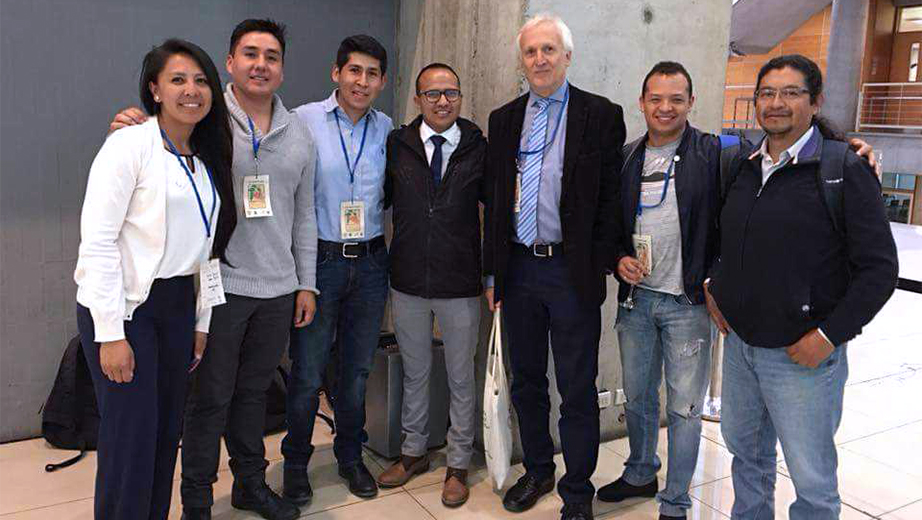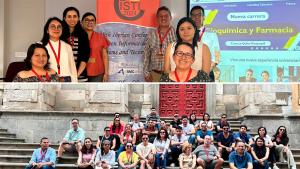The GID-STD research group studies Ecuador's energy security and efficiency
The GID-STD research group studies Ecuador's energy security and efficiency
Cuenca,
lunes 4 diciembre 2017

Energy efficiency
The university's Research and Development Group in Simulation, Optimization and Decision Making (Grupo de Investigación y Desarrollo en Simulación Optimización y Toma de Decisiones (GID-STD) carried out different research projects in order to offer useful information for decision making and policy formulation in the country's energy sector.
Mainly, the group's work has focused on studying energy efficiency and security in Ecuador, addressing relevant issues such as the implementation of wind power plants in Ecuador, and increasing the energy efficiency of domestic appliances to reduce their impact on the national electricity consumption.
Researchers Nelson Jara and Fran Reinoso, along with Mechanical Engineering students Kenia López, Vinicio Astudillo, Hernán Morocho and Arnaldo Peralta, suggest 3 models based on the Dynamics of Systems methodology with which they project the cases analyzed by the year 2050.
The results were presented in the XV Latin American Congress of Systems Dynamics (CLADS2017) held in the city of Santiago, Chile. The papers were:
- "Study of the behavior of the national index of energy efficiency for domestic refrigerators in Ecuador", it shows how the inadequate use and years of operation of domestic refrigerators, which in many cases exceed 10 years, affect 35% of residential electricity consumption which constitutes 25% of national consumption. The study shows how it would be possible to take advantage of the opportunities provided by the international market for exporting these products by adjusting the energy efficiency index based on different realities and not only local ones, stimulating the development of national production through the incorporation of technological improvements.
- "Analysis of the influence of technological improvements in the increase of the energy efficiency of domestic refrigerators in Ecuador": presents a model that allows the analysis of the influence of the type of compressor on the energy savings of domestic refrigerators operating in Ecuador from 2010. The model is based on the comparison of the electric power consumption in TWh/ year of the total of this equipment, and considers three cases of different technological application by type of compressor and refrigerant, analyzing the most used in several Latin American countries.
- "Study of the energy security index of Ecuador". Based on the structure proposed by the World Energy Council (WEC), a model that simulates the main indicators of energy security has been built, such as security of supply, resilience and access to electricity. The results of the simulation projected until the year 2050 show an optimistic scenario for Ecuador calculating an increase (0.73) of the energy security in the country
- Decision making model to implement smaller wind power plants: Ecuador case". By measuring the wind speed in the different regions of the country, and considering the technological, environmental and economic aspects that directly influence the total cost of the wind project, possible scenarios are related based, mainly, on the analysis of the wind speed interest and price of carbon certificates. The results of the simulation show that the wind project is feasible in terms of profitability required for this type of project, which corresponds to a total cost of approximately USD 44 million.
Researchers from the GID-STD group state that the models presented at CLADS2017 represent a contribution to the formulation of policies in the country's energy sector, providing elements of judgment for decision-making and the planning of future projects






Follow us
Follow us